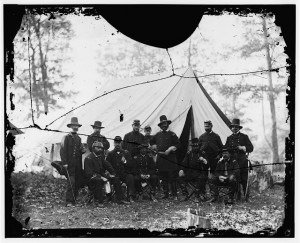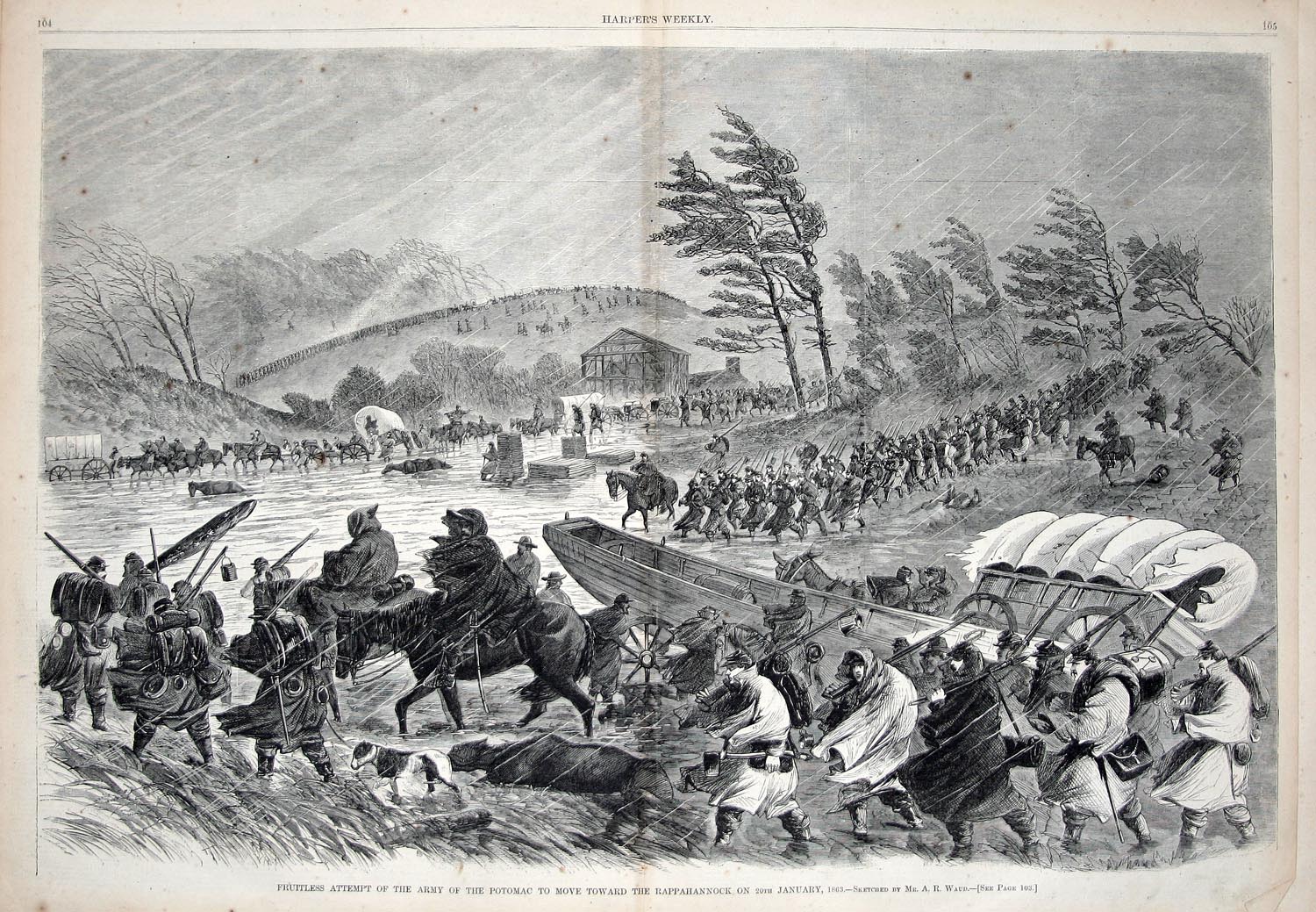Counting the reasons not to go into winter quarters
150 years ago this week citizens in Richmond could read this recap of the New York Herald’s case for immediate attacks by the federal armies. From the Richmond Daily Dispatch December 1, 1862:
The Herald on a speedy advance.
The New York Herald says the people of the loyal States of the Union, as manifested in the late elections, demand an active prosecution of this war East and West. They expect it, too, from the promises held out by the Government, from its vast preparations made and its formidable aggressive movements afoot by land and sea. Particularly in reference to the grand Army of the Potomac! this belief of a forward movement entertained, regardless of the snows, rains, frosts, and thaws of a Virginia winter. The pressing necessities no less than the present advantages of the Government forbid the idea that three or four months are to be wasted in winter quarters. It continues:
The depreciation of our paper money — federal and local; the pressure of the national tax bill upon all the business avocations of the loyal States; the doubts and misgivings resulting from the continuance of a powerful rebel army between Washington and Richmond; the enormous sums of money required to maintain the opposing army of the Union, and the heavy reinforcements of men demanded from time to time to repair its losses, whether fighting or inactive will suggest some of the necessities for active operations, regardless of wind or weather. The impression is widely entertained, and we think it well established in truth, that the Union army in Virginia is stronger and better prepared now for the work of a triumphant campaign than it ever has been heretofore, or is likely to be hereafter. The experience of last summer’s campaign on the Richmond peninsula has also proved that if he would escape the deadly malaria of those swamps, and those tropical rains which render them almost impassible, Gen. Burnside must avail himself of the advantages of the winter season for his advance upon the rebel capital.***
Let Washington be rendered perfectly safe without requiring Gen. Burnside to keep a sharp eye in that direction while advancing upon Richmond, and let him be further assisted with a co- operating land and a naval force by way of the James and York rivers, and his advance upon the rebel capital will be the death blow to the rebellion. The army Lee, if not captured or destroyed at Richmond, will be enveloped by forces sufficient to capture it or scatter it to the [w]inds; and, with the loss of this army, the suffering and exhausted people of the rebellions South themselves come to the rescue. They will recognize in the results of the late New York and other elections of the Northern States a guarantee of security in the Union, and they will adopt the saving alternative of submission.
But time is precious. The condition of the Federal Treasury and of the currency of the country; the heavy drain upon the resources of the loyal States required to sustain our immense fleets and armies in the field, admit of no inactivity, no waste of time, money, men, and opportunities, by waiting upon the elements. We must during this winter, if not before the expiration of the present year convince the people of the South of the folly of further resistance, and England and France of the folly of intervention, or we know not what may be the consequences.
This image depicts a scene from January 20, 1863 and is found at Son of the South.

!["Masterly inactivity," or six months on the Potomac [caricature of inactivity of Confederate and Union soldiers on both sides of the Potomac River] (rank Leslie's illustrated newspaper, vol. 13 (1862 Feb. 1), p. 176; LOC: LC-USZ62-82807) "Masterly inactivity," or six months on the Potomac [caricature of inactivity of Confederate and Union soldiers on both sides of the Potomac River] (rank Leslie's illustrated newspaper, vol. 13 (1862 Feb. 1), p. 176; LOC: LC-USZ62-82807)](https://www.bluegrayreview.com/wp-content/uploads/2012/11/3b29457r-300x239.jpg)

